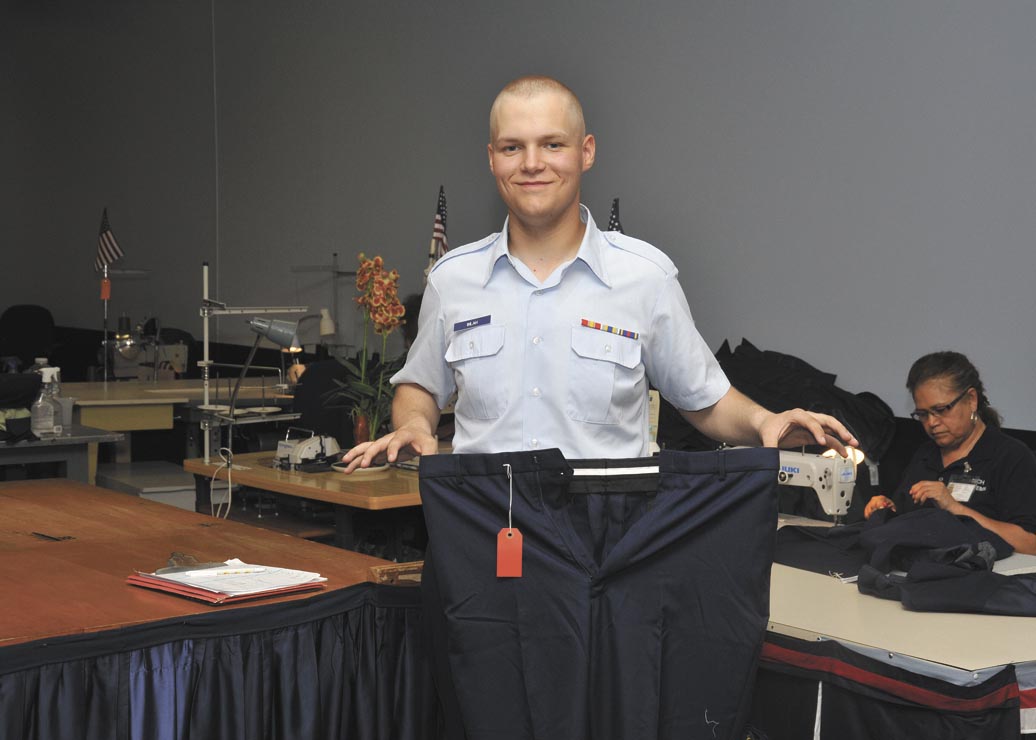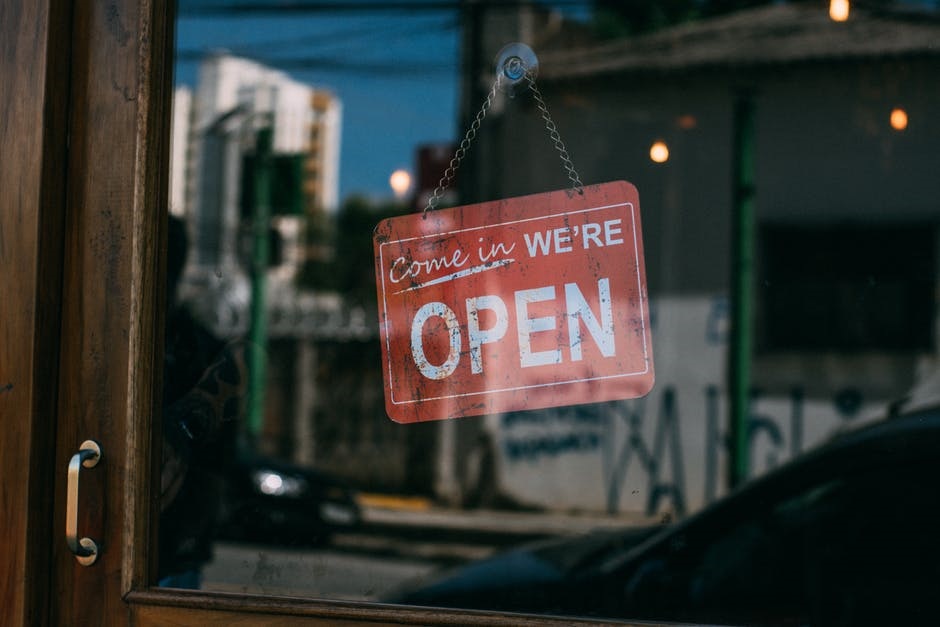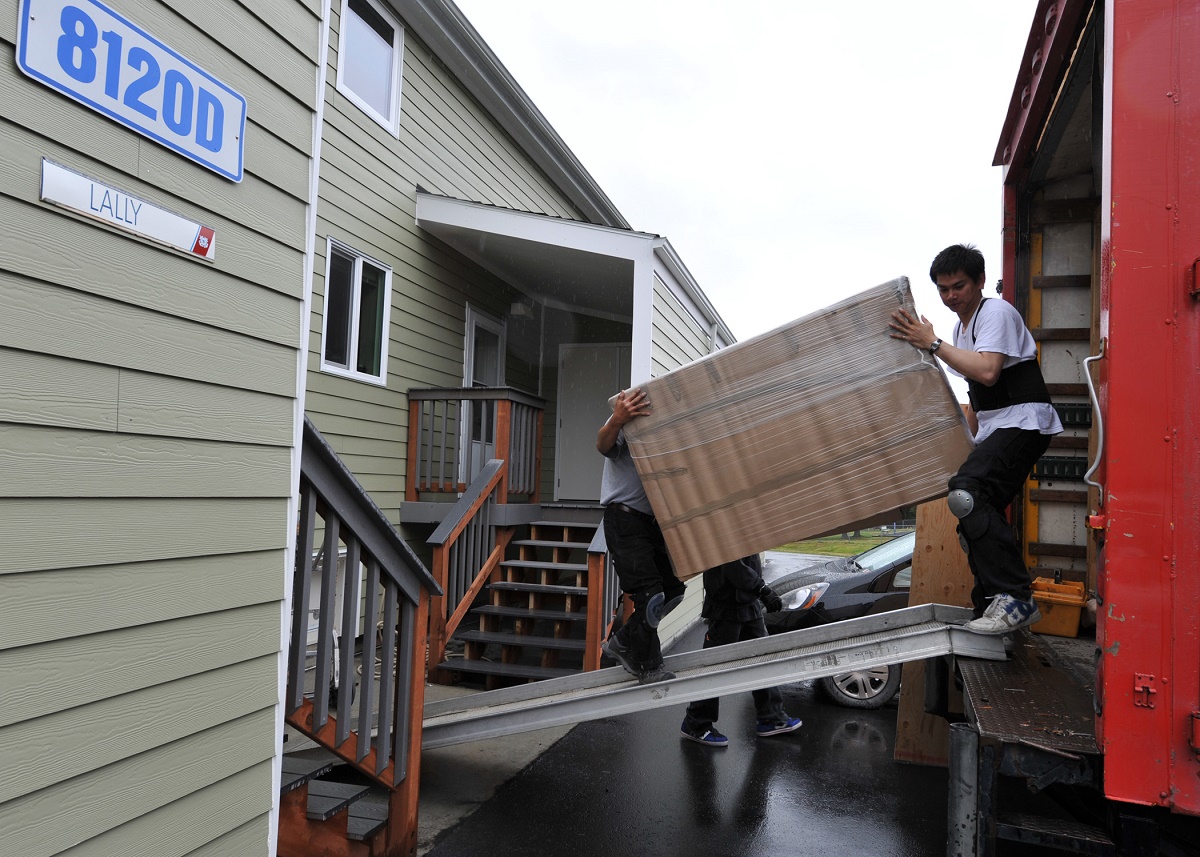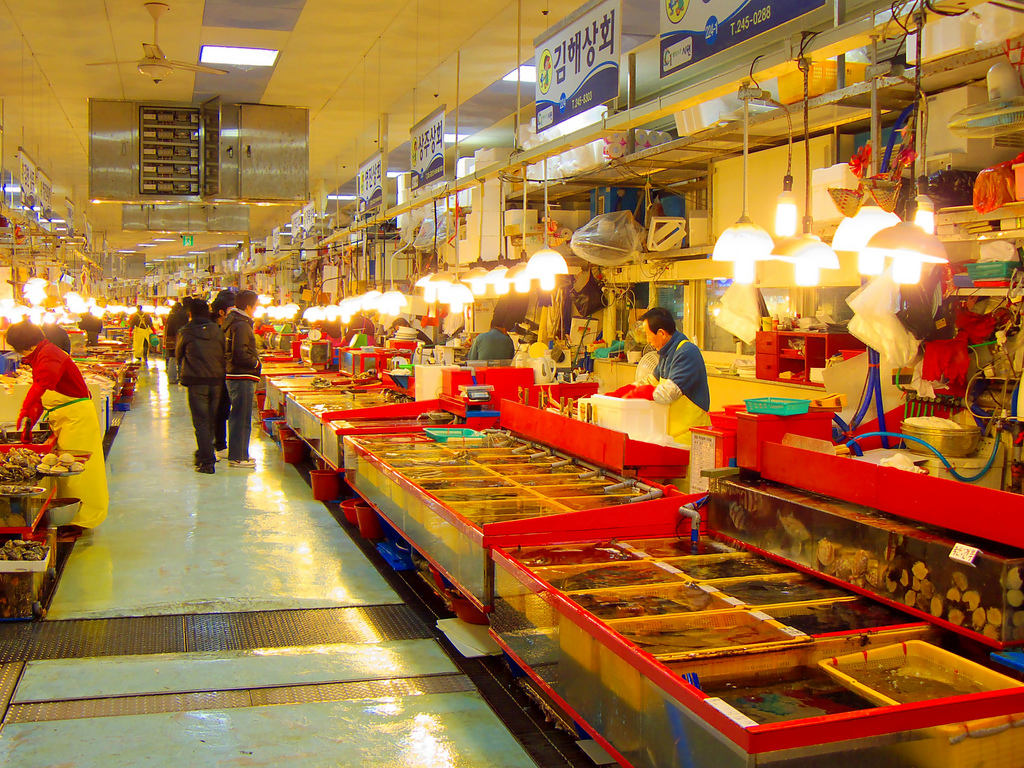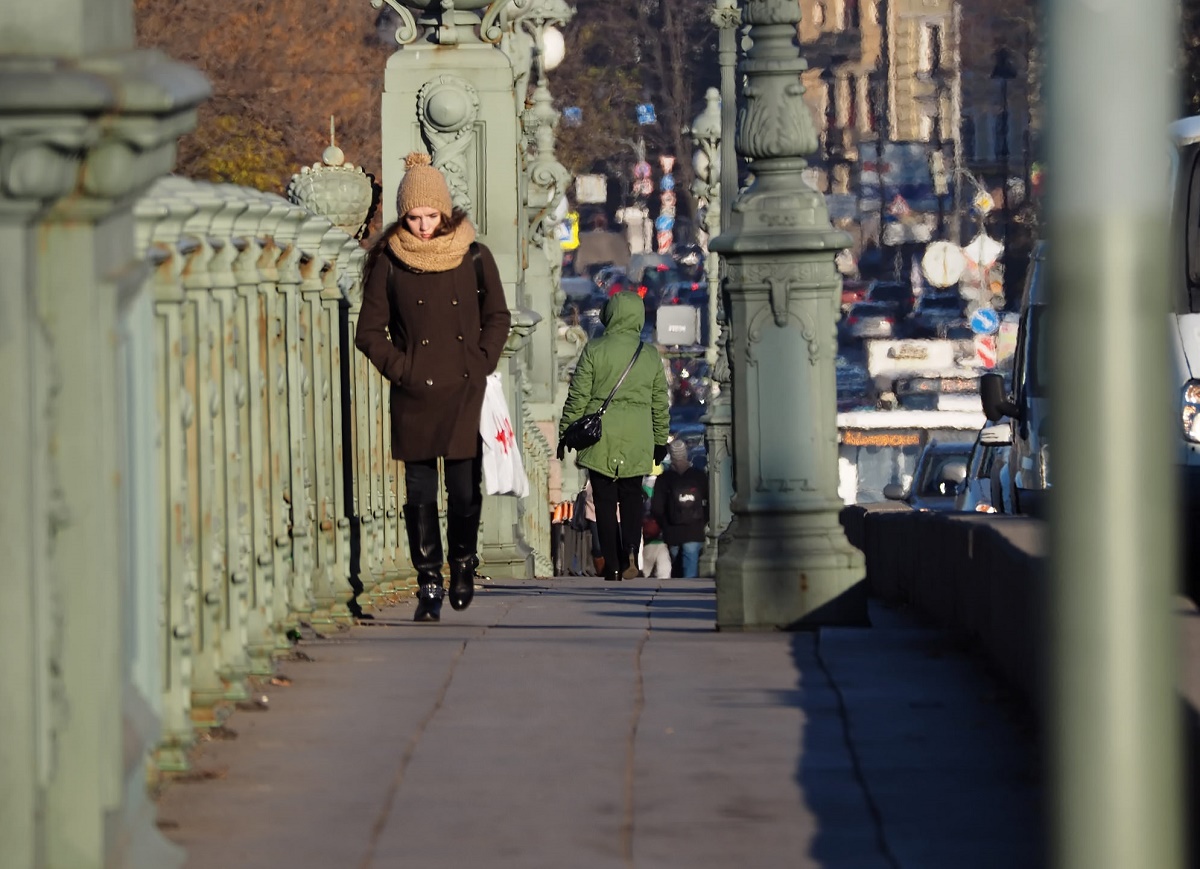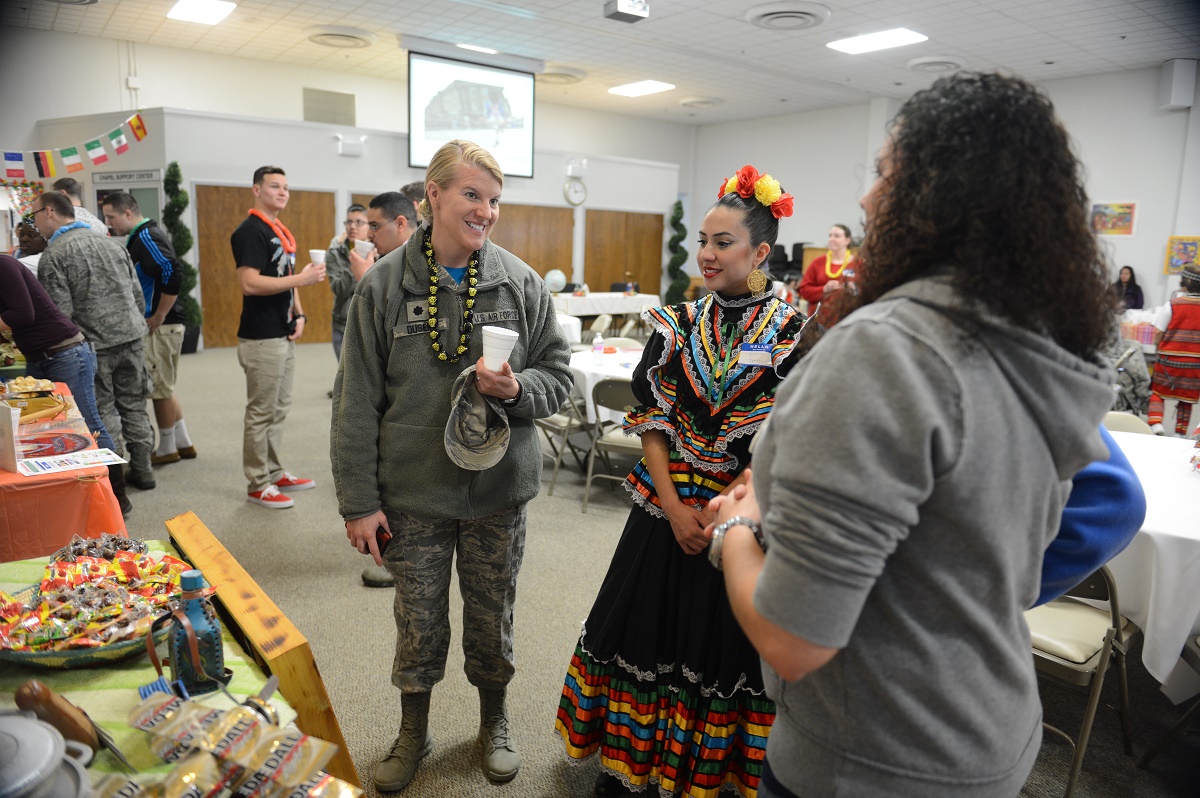People live abroad for many reasons. Maybe they found a fantastic job across the globe or they're trying to get an education. As a newcomer to the territory, there are many things you tend to learn quickly. Whether its the lack of familiar food or learning a new language, there are many obstacles in this new venture. Expats come forth with several things that you never know when traveling to a new area.
34. Dangers While Eating
Dealing with food allergies is sometimes like playing Russian roulette. I'm currently living abroad with a VERY severe nut allergy. I can ask till I am blue in the face about ingredients but sometimes things still get lost in translation. This goes hand in hand with finding the appropriate medicine to help if needed, I had to ship my epipens from home as the country does not have them in their hospitals/pharmacies.
33. Roll The Credits
Credit - you start over. Opening a bank account is like applying for a job in counterintelligence at the CIA. You pay astronomical rates for insurance. Your new credit cards are the kind you get when you’re still in college with tiny limits. Buying things online is a challenge because your “real” credit cards have a zip code instead of a post code and your new ones have no credit available. You have to enter the financial system from square one.
32. Weight Of The World
Gaining or losing weight, especially in the beginning because you can't read the nutritional information on the food you buy. Also having no frame of reference for the nutritional value of restaurant/food stall food you have while still trying to figure out how to cook with the ingredients available. This becomes extra challenging if you have any dietary restrictions, like allergies or if you're vegetarian etc. Regardless of whether you really pay attention to what you eat in your home country, you really don't realize how much you know about your food until you can't recognize most of the ingredients and the labels are all in a foreign language. It can be kinda stressful not knowing what you're putting into your body every day.
31. Live And Learn
I have been a long time expat so my kids never experienced life in our home country and were always educated in the local school system of the country we were living in. Each of the three graduated and stayed in the local country for a university which they now consider home. I've got three kids living in three different countries, we are living in a fourth and it just stinks. We have no home base and what they each consider their home base is thousands of miles away from me. I miss that strong family anchor that families who never moved or traveled have. On the other hand, we lived and experienced so many great things and I am very thankful for that.

30. Taking Care Of Business
Background: 9 yrs in New York City before moving to London 1 year and 1 week ago to the day. The one thing for me is the operating hours of local businesses. The paperwork I expected. In case anyone cares, never take your motorbike from your home country to your new residence. Just sell it and buy a new one. You’ll save yourself months of frustration. But, I digress. When you go from never having to think about whether something is open to plotting a complex military operation to procure shampoo it is infuriating. The post office is open for exactly 2.5 hours on Saturdays and Sundays they’re closed. I’m sure there is an asinine reason behind 2.5 hours but the only answer I get from local friends is “that’s how it is.” Businesses above a certain size have reduced hours on Sundays whereas smaller ones can stay open later - except they don’t. Customer service numbers are generally working hours only. In the rare instance they’re open into evening hours the lines are jammed. You’ll experience this constantly as you try and figure out the new rules of the game and adjust accordingly.
29. Time To Move On
That barely anyone stays. In my years of living in a tropical country that attracts many expats, I would say less than 1 in 1000 people that I've known that moved here have stayed longer than 2 or 3 years. Unless you have a certain reason to be here/there, you will find that the country you move to is not really any different than the country you lived in. Sure the paint is a different color or the house is a different material. But essentially, everyone is trying to do the same thing and your life will not be significantly altered simply by moving.
28. Strangers When We Meet
Those friends of friends (aka complete strangers) will be given your phone number because they are going to be in the same country that you live in and you are expected to give them advice and recommendations even if you live nowhere near where they are going to be.
Oh, you're going to "x" city which is 500 miles from where I live? Sure I can tell you where to eat and stay and get drinks!
God forbid they are actually coming to the city where you live, you will have to meet up with them. With complete strangers. They will come to your home. Everyone will feel super awkward.
27. Never Take Friendship Personal
It's exhausting making and keeping friends.
I'm a Dane living in Singapore and after 3+ years most of the friends I made when I arrived have gone. You tend to group with other expats and they come and go. I put a lot of energy into making new friends when I arrived, but continuously doing that is just tiresome. I have given a bit up on it, and have more or less settled on having acquaintances now. I know a few other people in the same situation. That makes you miss home a bit where the friend situation is much more stable, but the whole life is less interesting - at least in my opinion.
26. Shoo Skeeter Shoo
Insects, especially mosquitos. When I first moved here to Australia, I'd had no exposure to Australian mosquito venom. So when I got bit, the bites swelled up to massive wraps. It looked like someone had buried half a golf ball under my skin. It took a couple of years to develop a tolerance to the venom.
I still get bit but now only get a small, itchy, spot.
25. I Fought The Law
You get taken advantage of badly if you're in trouble with the law. My friend got into a car accident in Korea, the cop and the injured party basically extorted her for money, made fake charges, and confiscated her passport. She basically had to contact the embassy for them to back off. The insurance company covered the accident and all was well, but for like 48 hours my friend thought she either had to pay 100k or spend 5 years in jail.
24. Double The Taxes
For Americans, taxes.
The US is one of the few countries in the world that requires citizens living abroad to file for taxes. While there is a fairly generous exemption for the first ~$100,000 you earn abroad, you still have to file; which takes time, money, and effort because the US tax code is a PITA when you have multiple income sources in multiple countries (for example stocks and dividends in the US, salary elsewhere). This is on top of your obligation to file in your resident country (so you have to do taxes, twice).
Also, you have to report any foreign account that contains over $10,000 equivalent at any point during the year in a document called the FBAR. This is really important to do, as if you don't file it is a federal crime (ostensibly to combat people stashing money abroad).
23. Family Comes First
You will end up spending ALL of your vacation time and money vising family in your home country, especially if your parents are old and/or you have kids. All those amazing cities in Europe you want to explore? Sorry, you spent 10% of your after-tax salary flying back home to stay in your hometown for two weeks.
I love my family but this is really something I haven't been able to figure out and all the expats I know (past a certain age) deal with it. Denying grandparents the opportunity to see their grandkids or refusing to visit aging Mom and Dad because I want to sit on a beach in Greece seems so selfish...but man do I want to sit on a beach in Greece.
22. Only For The Adventurous
Current Expat here from the US who has lived in South Korea (5 years), Italy (2 years), and now Belgium (going on 3rd year). So many things that people do not tell you about, even fellow coworkers who are expats: such as - finding out that you have to buy certain plastic bags for trash, trash days are on certain days of the week depending on which side of the street you live on, driving in city centers you need a special sticker otherwise you will get tickets, driving in other countries (in Europe) have different tolls (vignettes) as well as special stickers for driving in the city center, knowing to buy vegetables you have to wear the plastic gloves and weigh them yourself, locals really don’t want to be your friend because they know you are temporary, work ethic of your host country is really different from yours, but it does take a certain personality to thrive in a different country. Someone who is adventurous and someone who can solve problems themselves. Despite all the little annoyances, it is a great experience to live overseas. But again, it’s not for everyone.
21. Living In The Plastic Age
While there may be things that you love about the foreign country you've moved to, there are usually an equal number of things you learn to hate. I moved to Japan and while I don't regret it one bit, I miss the openness of the US, and sometimes I get frustrated about how plastic-y things are here. Everything has a shiny sheen on it, physically and culturally. There's also a lot of ridiculous bureaucracy.
20. Hungry Like The Wolf
How subtle culture shock can be. I moved to a place not too dissimilar from home and I am almost fluent in the language, so it never felt all that alien to me. I did, however, notice that I got irritated at smaller things. I'd get annoyed with how mums treated their kids and even silly things like the timing of the traffic lights. And all the food tasted a tiny little bit different, but it was like every food item tasted different in the same way. Like some vinegar fairy had sprayed everything in the supermarkets with a tiny little bit of vinegar. It's also super annoying that they think pie crust is good for anything but pig food. And all the bread is too soft. And no one sells pirogi (seriously why would you choose pasties over pirogi?) or salted liquorice.
19. Checking The Price Tag
Comedy. What I thought was a great joke doesn't apply in Spanish really. Sarcasm really isn't a thing where I live. Other then that having an open mind and not expecting people or things to be like "Back Home" most people I have seen move down here, leave in 2 years, so if your moving have an exit strategy. Also if your moving check prices on stuff. I was so used to a TV at Walmart being a couple hundred dollars, computers for dirt cheap. That doesn't exist in most places outside of US or maybe Europe (haven't lived there), but where I live it's double if not triple on many items I took for granted when we moved here years ago.
18. Embrace Your Surroundings
I never really felt at home, at home. After a few years abroad, I learned that I will probably not get that longing feeling everyone is hoping for.
But in my many experiences, from 6+ countries in anything from 4-18 months per time I learned that you will always get sick of the culture in which you are currently presiding. I learned to identify it, and for me it is around 3 months in. Everything sucks. The food quality and selection isn't the same. The hobbies aren't the same. The cashier works slowly and the grocery store is not organized at all. Your bed is too hard, and there is no logical place to get a mattress. Everything seems like a struggle and no one understands it (or you).
But it always passes. You acclimatize to the locals and their ways, or you quit and go back. Best way to describe it really. Going from a big city fast life to an island life is probably the strangest thing I have tried. Going from 180km/h to 10km/h. Suddenly big problems don't matter and small problems could be big problems.
My advice? Try to acclimatize and keep an open mind - or you will only grow resentful and long for "home". Remember you left that place for a reason
17. No One To Confide In
The fact that people always assume you're life is better for having moved around. While not entirely wrong, never underestimate the social support from being in a place where "everyone knows your name" and your history. I wouldn't know who to call if I had an emergency most days....
16. We Are The World
That people are pretty much the same regardless where they are from. Of course, every country or culture have their own rituals that shape a person's personality to some degree, but once you move away you realise that they think, feel and live in pretty much the same way you do. I'm 100% sure that more interaction between people from different countries would solve many conflicts in the world.
15. Tastebuds Are Sobbing
Your own food that you grew up on. Some examples include going to the chipper after a few beverages, real milk for your cup of tea, a fry with proper tasting sausages, butter, potatoes on a daily basis. A chicken curry from the local Chinese, I live in Asia and haven't found a decent one yet that tastes like home lol. People from home constantly talk about how lucky I am to be surrounded by great food they only ever get from takeaways. But most of all, a chip butty, damn do I miss chip buttys.
14. Join The Crowd
Unless you want to be miserable, you HAVE to adapt - learning the language, local culture, etc. You can't assume that all the things that made up your daily life in your home country will transition well - if at all - to your new home.
Don't be one of those people who complain about "well, that's not how it's done in <homeland>." UNDERSTAND THAT YOU ARE NO LONGER AT HOME. In other words... YOU are now the immigrant!
13. You're Not Fooling Them
Blonde haired, blue eyed, fair skinned American here who was an expat in Korea, they know you're American. I feel like my appearance is fairly similar to those in other parts of the world. Nope. They knew. Every time. I even asked if it was my clothes or my accent and they said they could tell by my face. I don't know what it is that makes one look "America" but I have it!
Also, they will take photos with you and of you. I could have made a career out of it in Korea. I smile thinking I am in a photo album in some little Korean home as a random American chick just living the dream.
12. Playing The Waiting Game
How frustrating it can be to be dependent on others in getting things done. I moved to my fiance in Brazil and while my Portuguese is alright, it's not good enough to arrange things myself, so for everything I have to ask my fiance to do it, especially with all the bureaucracy and moving needed when first arriving in the country. Even after one year I don't feel confident enough to make arrangements (e.g. call somewhere) myself that exceed getting food from the supermarket or restaurant. Also, because of all the bureaucracy that being a foreigner includes, and experiencing different values, you'll likely need to learn a LOT of patience.
11. Keeping In Touch
Guilt feelings. Since I moved away I've constantly been feeling bad for leaving my relatives and friends behind and not being able to be there whenever they might need support. I always plan next visits and try to balance it out so that they would know that I care about them despite not being there. I have had a hard time finding people that can relate to this, because they really need to be in the same situation.
10. Making The Transition
You will be dealing with the government a lot, whether or not you decide to immigrate permanently. You need your new country's equivalent of a SSN, every job is going to want copies of every immigration record you have, you have to apply for a new work permit every few years (until pr) and your driver's license will expire at the same time so you have to renew that too. Government websites are awful and unhelpful and government agencies are packed and move very slowly, and you'll be dealing with them 5x as much as any ordinary citizen.
And dealing with the US government doesn't get any easier. You still have to file taxes every year, you have to renew your passport abroad which is easy IF you have a consulate in your new city, you have to register to vote from abroad every election and even then they'll probably forget to send your ballot to you half the time.
9. Dodging Stereotypes Daily
British expat to Canada - my accent is a huge asset, it gives me a huge free leg up in picking up girls, people seem to take me more seriously than they should and people just seem to treat me as more interesting or important for no reason.
It can wear thin pretty quickly, though. I enjoy the initial conversation starter of being "exotic" in a small way, and the extra attention it gets me. But a lot of people just constantly barrage me with stupid questions that they know the answer to, they just want to talk/make a big deal out of it - eg "Do you really call this a biscuit? Do you really drink tea all the time? Say (stereotypically British phrase) for me!" and so on. It makes for a lot of tiresome and repetitive conversations and just makes me think somebody is sheltered if they make a big deal out of it. Probably doesn't help that I'm in a fairly small city without much diversity.
8. Hunting For Good Attire
Buy clothing can be hard. For example, I’m 6 ft 1 (185cm or so) and a bit overweight (95kg or so). When I lived in Hong Kong it was hard to buy shirts. The same is true for shoes and makeup if your skin colour is different from the local population.
7. Classmates Becoming Best Friends
How close your grade becomes in middle/high school. When I lived in Bangladesh 4 years ago (I'm a junior in the U.S. now), everybody in your grade knew each other, and not just as acquaintances, but friends. Here in the U.S., I honestly see people I have never seen before everyday.
 Photo by Daria Shevtsova from Pexels
Photo by Daria Shevtsova from Pexels
6. Stranger In A Strange Land
Not sharing a history with the people kinda feels like no one actually knows who you are. I agree fully with never feeling like it's home. I moved to Canada from the States and it has its positives but unless you are rich or have help from family it's hard to move forward with life. We've been stuck in a rut for 5 years and every day I grow to hate this place more and more. groceries eat our paychecks up and forget trying to buy a house it's near impossible unless you have a 30 grand down payment. In the states where I'm from you can own a home and have a good quality of life on less pay. Chain restaurants on every corner no variety of products, no culture. maybe I just got stuck in a horrible area lol.
5. Enjoy The Silence
As an introvert who lives in a country where I don't speak the language the thing I most appreciate is the peace and quiet. Hong Kong is indeed a crowded and noisy place, however, being unable to understand much of the primary spoken languages (Cantonese and now Mandarin) means I can easily tune-out on a crowded underground train or bus stop. This gives me a certain sense of privacy and calm.
4. Finding Your Tongue
Forgetting how to be fluent in your own language. When you speak a foreign tongue all day every day for years you start to lose track of your native tongue. I still speak English plenty in my free time and I can already feel it slipping after only two years. I find myself searching for words a lot more often, innuendo and idiom are almost out of the question. For instance, it took me about three minutes to remember the word idiom, despite the fact that once I was an avid creative writer in English and prided myself on my vocabulary.
3. Adding More Baggage
The country you move to is not just "your home country minus problem X": it has its own set of problems that hardly anyone outside of it knows or talks about, and it might be more than you can handle.
As an example, I had several friends from the USA who moved here to the UK because they liked the idea of universal health coverage. Most of them complain every day about the small size of houses and the excessively high prices for even a one-bedroom without a garden, and some are thinking about moving back because they can't imagine living in such small rooms.
2. Lost In The Supermarket
Relearning "life". Basically not knowing all those things that takes years of being surrounded by that you don't realize you once had to learn.
For example, shopping can be tiresome when you don't know the brands. I was looking for some shirts and drove to the out of town retail area, parked the car (even that can be different) looked at the 20+ buildings with their big logos and had no idea which one I needed. So I had to walk the entire park.
This unfamiliarity goes on for almost all things for a long time. Sadly you then all to often cut yourself a slice of familiarity to take comfort and be efficient. My first 30 minutes grocery shop took about 3hrs as I just saw aisles of colors and random words.
1. Trapped Under Ice
Restaurants in the United States of America use so much ice and also they put it in giant glasses. After about a year in Italy and various other European countries, I came home to the US and went straight to Chicago for a friend's wedding. The afternoon before the wedding, for lunch, I got with some buddies and we went to some Irish bar and grill somewhere in the near north side. When I got my giant glass of water, served at what can only be described as an inhumanly cold temperature completely inappropriate for consumption with a hot meal, and nobody else blinked, that was the first time I felt like a foreigner in my own country.
It's been over a year now and I still can't stand the ice. It's January in the midwest and I'm having soup! I don't want 2 cups of ice in my water!





